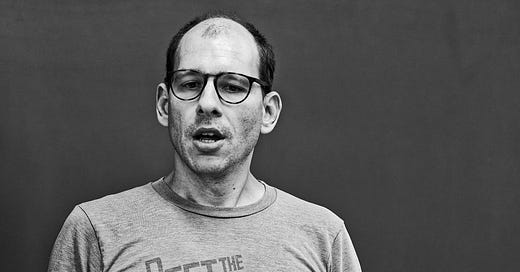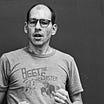What is philosophy to you?
It’s first and foremost my day job. It’s one of the things I was good at, I kept doing it until sunk costs forced me to pursue a career in academia. I was being paid to read and write, which I enjoy. I don’t have a good definition of philosophy, though I can point to philosophers, places where one does philosophy, and superior and inferior examples of it. Find the place where people think clearly, at a certain level of description, about stuff that is the business of other disciplines (Victorian literature, elementary particles, DNA, electoral politics, markets), there you might find good philosophy. The family resemblance? Thinking clearly across domains — things like drawing logical and conceptual connections, detecting errors, dispelling confusion, and explaining how different levels and parts of reality may be related. Because we don’t have a proper subject matter we’re forced to intrude on other people’s turf, which is fun.
How were you first introduced to philosophy?
In high school, like all French students—it’s a required course in ‘terminale’, our senior year. But I think I read a little bit of it earlier too, mainly for literature classes (Montaigne, Pascal, Descartes). After high school, I made a detour through engineering science, missed philosophy, joined hypokhâgne (humanities “classes préparatoires”) and more or less stuck with philosophy hereafter. I’ve never been a voracious reader. I’ve always had gaps and would often jump from one thing to another without finishing books. Unsurprisingly, I was very attracted to Nietzsche early on, but equally unsurprisingly, I understood much less of it than I thought. Some of my first philosophical shocks, besides Nietzsche, must have been Spinoza’s Ethics and Wittgenstein’s Tractatus. I only got into analytic philosophy much later. I went through a lot of Continental philosophy first.
How do you practice philosophy today?
Much of what I do as a philosopher is teach philosophy. I feel fortunate because I enjoy it, it’s meaningful, and it’s not extremely time-consuming. I also try to write and publish regularly—more in bursts than smoothly and consistently. Some of that involves arguing against the grain, some more involves expanding on previous ideas. I wish I had regular practice but I don’t. Cliché alert: I think about a lot of things when I run, and sometimes it’s philosophy. No one can hear me though, and because my writing practice is a lot less consistent than my running, some of that thinking may never see the light of day. It’s good mind training, though, and sometimes it serves as a factory of ideas, some of which end up on paper. Contrary to cliché: I rarely talk philosophy with non-philosophers, in fact, I don’t especially enjoy that.
Why is philosophy important to you?
It’s not that important. The most important things in my life have little to do with philosophy—family, cats, music, running, reading other books. For the parts that do, I would say it keeps my bullshit detector alive, and there is a lot of detecting to do. It’s also taught me to connect ideas and domains in novel ways, to organize and make sense of my confused thoughts, and it got me a living wage. Now there is a sense in which philosophy shapes my life. It influences how I see the world and how I act. I work in animal ethics, I’m vegan, and those things are connected. I’m a naturalist, which colors my perception of events, their causes, reasons, and meaning. Yet maybe those things are overdetermined and I would have had a similar worldview without philosophy. I’m honestly not sure.
What books, podcasts, or other media would you recommend to anyone interested in philosophy?
Because few philosophers in the Anglosphere have heard of him, and he was very important to me when I was only a budding philosophy student: almost anything by Clément Rosset. There are, to my knowledge, only two book-length translations available, Joyful Cruelty and The Real and its Double. If they can read French or find a decent translation, people should read La Force Majeure and then spend more time listening to Mozart to understand why life is worth living, which is more than anybody can ask of philosophy. Another marvelous philosopher who influenced my early thinking in animal ethics is Cora Diamond.
One of my favorite podcasts is Very Bad Wizards, hosted by philosopher Tamler Sommers and psychologist David Pizarro. I also like the physicist/natural philosopher Sean Carroll’s Mindscape podcast, which somehow got me thinking I should go back to studying math and physics.
Nicolas Delon teaches at the College of Charleston, to which he came by way of Paris, New York, Chicago, and Sarasota, FL. He lives with his wife, two daughters, and two cats. His website is nicolasdelon.com and his blog is nicolasdelon.substack.com.







There are three distinct areas of philosophy with distinct aims. They are; a) Truth Wisdom (the most universal answers to the most universally meaningful questions), b) Practical Wisdom (custom answers to individual problems), and c) Academic Philosophy (credentials).
more: philosocom.com/post/metaphysics-in-a-nutshell